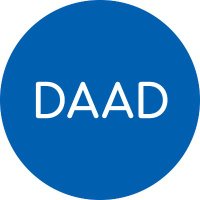The information provided will be used to select the top 50 finalists for the Youth Well-Being Prize Competition. The data provided will be used for applicant selection purposes only. The application data may be shared with USAID's Youth Team and Making Cents International, as a part of the applicant selection process. No data from this application will be distributed by USAID or Making Cents International otherwise. Making Cents International and USAID will take all reasonable measures to protect personal data. Making Cents International and USAID shall retain personal information collected online for only as long as is reasonably necessary to fulfill the purpose for which the information was collected, or otherwise similar activities.
You have the right to withdraw your permit of personal information sharing with Making Cents International and USAID, upon which the latter will be under obligation to delete any personal information/data pertaining to you or your child (for parents of children under 16).
Completion of this application is voluntary. You may withdraw your application at any time by exiting the application. In process applications can only be saved when using a Google account.
Competition Overview: The Youth Well-Being Prize Competition is looking for young change makers, between the ages of 10 and 29, with innovative solutions to make educational materials and important information easily accessible to young people. These solutions should build inclusive knowledge, meaning that young people, no matter their background, culture, or identity, would have equal access to education and information that's relevant to and respectful of their experiences. By increasing inclusive knowledge and access, young people can protect their well-being, stay safe, and make a positive impact on their own lives and communities. USAID is seeking solutions created by young people, for young people, and these solutions should prioritize inclusivity and accessibility, and recognize the diverse identities of young people in the areas of mental health, digital harm, safeguarding, gender-based violence, and climate change:
Mental Health: Ideas that focus on the mental health of children and youth. Competitors interested in mental health, personalized care, psychotherapy, or any interventions that help reduce stress and improve the lives of young people should apply here. The innovation should aim to enhance individual, interpersonal, and/or overall well-being for youth.
Digital Harm: Innovations in this category should relate to use of digital platforms (such as social media) and safety. Competitors interested in reducing digital harm as caused by online platforms and/or digital use, including digital harm done offline for children and youth should apply in this category. Digital harm can include any of the following: hate speech, cyberbullying, doxing, deep fakes of people without their consent, nonconsensual explicit content, misinformation and disinformation, etc.
Safeguarding: Innovations in this category should relate to prevention and/or response to child and/or youth abuse, exploitation, neglect, and violence including prevention and/or response to sexual exploitation, abuse, and violence. Competitors interested in protection from and elimination of all forms of violence against children and young people should apply in this category.
Gender-Based Violence: Innovations in this category should work against harmful actions or threats that target individuals or groups based on their actual or perceived sex, gender, gender identity, gender expression, sex characteristics, sexual orientation, or how they challenge traditional ideas of masculinity and femininity. Competitors interested in gender equality, equity, and preventing, mitigating, and responding to gender-based violence should apply in this category.
Climate Change: Innovations in this category should relate to building climate awareness, improving climate education, promoting sustainable lifestyles, conserving nature, supporting renewable energy, adopting environmentally friendly practices, and/or implementing climate adaptation and mitigation projects. Those interested in youth-led and children-led climate mitigation efforts and reduction in high levels of climate anxiety and grief among children and young people should apply in this category.

